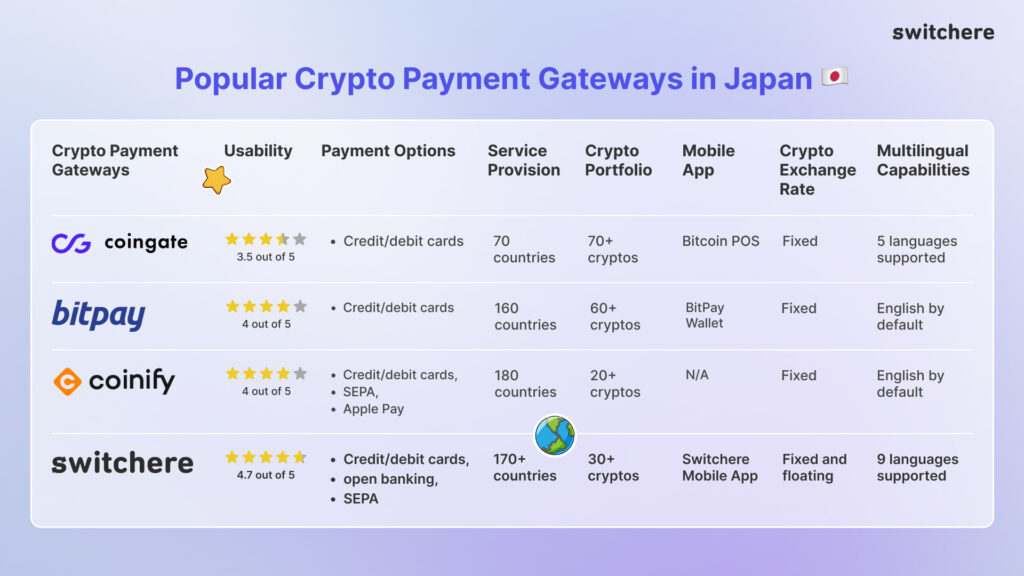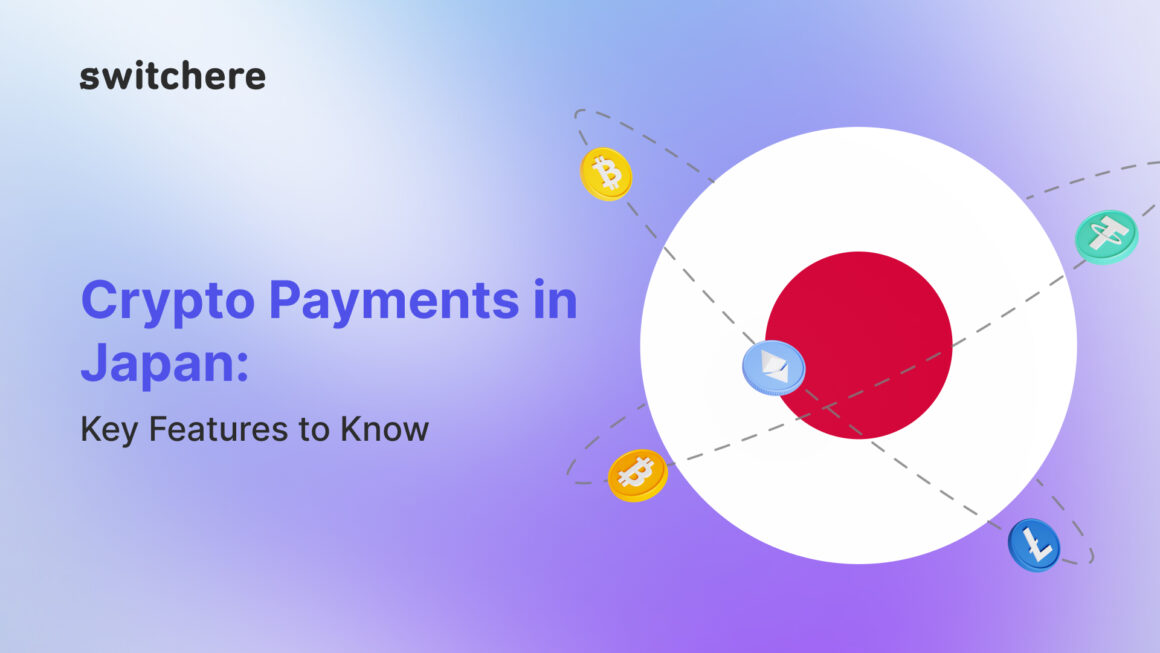Japan has long been recognized as a pioneer in the world of cryptocurrencies, showing a unique blend of innovation and regulation. The country has been a hotbed for cryptocurrency development, while simultaneously implementing a robust regulatory framework. In this article, we will delve into the status of cryptocurrencies and crypto payments in Japan, emphasizing the licensing and registration requirements for businesses and crypto exchanges and showcasing key players in the Japanese region.
The Status of Cryptocurrencies in Japan
Cryptocurrencies, most notably Bitcoin and altcoins, have gained immense popularity in Japan. The country is known for its enthusiastic adoption of digital currencies, with a significant number of businesses and individuals investing in or using cryptocurrencies for various purposes.
Legal Tender Status
In April 2017, Japan passed a groundbreaking law recognizing cryptocurrencies as legal tender. This was a watershed moment that catapulted Japan into the global cryptocurrency spotlight. As a result, cryptocurrencies gained legitimacy and have since been widely accepted by merchants.
Regulatory Oversight
Japan’s Financial Services Agency (FSA) is responsible for regulating cryptocurrencies. The FSA introduced a licensing system for cryptocurrency exchanges to ensure consumer protection and prevent illicit activities.
Taxation
Cryptocurrency transactions are subject to taxation in Japan. The country classifies them as “miscellaneous income,” with tax rates ranging from 15% to 55%, depending on the individual’s total annual income.
Crypto Licensing and Registration Requirements
Japan’s regulatory approach is widely regarded as one of the most comprehensive and well-structured in the world. To operate legally in the cryptocurrency space, businesses and exchanges must adhere to certain licensing and registration requirements:
Exchange Registration
The cornerstone of Japan’s cryptocurrency regulation is the requirement for exchanges to register with the FSA. To obtain a license, exchanges must comply with strict regulations regarding security, customer protection, and anti-money laundering (AML) measures. The registration process involves thorough due diligence checks, including background checks on key personnel.
Anti-Money Laundering (AML) and Know Your Customer (KYC) Regulations
Japan mandates robust AML and KYC procedures for all cryptocurrency businesses. These include verifying the identity of customers, reporting suspicious transactions, and maintaining records.
Cold Wallet Storage
To prevent hacking and unauthorized access, exchanges are required to store a significant portion of customers’ funds in cold wallets. This practice enhances security and helps protect customer assets.
Regular Audits and Reporting
Exchanges must conduct regular audits and provide detailed financial reports to the FSA. This ensures transparency and accountability in the cryptocurrency space.
Crypto Payments in Japan
Cryptocurrency payments have gained traction in Japan, and many businesses now accept digital currencies as a mode of payment. This widespread acceptance has made it easier for individuals to use cryptocurrencies for everyday transactions.
Consumer Adoption
Many retail and online businesses have integrated cryptocurrency payment options, enabling consumers to make purchases using their digital assets. Popular cryptocurrencies like Bitcoin and Ethereum are commonly accepted.
Payment Processors
To facilitate crypto payments, Japan has seen the emergence of payment processors that convert cryptocurrency into Japanese yen at the point of sale, making transactions seamless for both consumers and businesses.
Point-of-Sale Terminals
Point-of-sale (POS) terminals designed for cryptocurrency transactions have been deployed in various retail outlets, enabling users to make purchases with their digital currencies effortlessly.
Popular Crypto Payment Gateways in Japan

CoinGate
CoinGate is a popular crypto exchange service provider that provides services in Japan. It supports over 50 different cryptocurrencies and offers a user-friendly platform for businesses to integrate cryptocurrency payments into their systems. CoinGate also provides easy-to-use plugins for various e-commerce platforms, making it a versatile choice for businesses of all sizes.
BitPay
BitPay is a well-established crypto payment processing provider that operates globally, including Japan. With BitPay, enterprises can accept virtual currency payments. It offers settlement in both cryptocurrencies and traditional fiat currencies, providing flexibility to qualified participants.
Coinify
Coinify is a Copenhagen-based firm that renders an array of cryptocurrency solutions for businesses in Japan. They support BTC, ETH, and other liquid virtual assets and provide an API for turn-key integration. Coinify also complies with Japanese regulations, thereby sufficing a secure and compliant experience.
Switchere
Switchere is a trusted and solid crypto exchange service provider rendering its fiat-to-crypto and crypto-to-crypto exchange service in over 160 countries worldwide (including Japan). It offers easy-to-integrate crypto payment gateways to businesses of all sizes (small, middle-sized and large-scale enterprises) with reasonable partnership conditions.
Switchere lets businesses accept crypto payments for goods and services via API, simple widget integration in tandem with the WooCommerce plugin powered by Switchere.
Conclusion
Japan’s cryptocurrency landscape offers a compelling example of how innovation and regulation can coexist harmoniously. With its legal recognition of cryptocurrencies, robust regulatory framework, and widespread adoption, Japan has set a precedent for how other countries can approach digital assets. The licensing and registration requirements for businesses and exchanges provide a high level of consumer protection, which is vital for the continued growth of the cryptocurrency industry.
